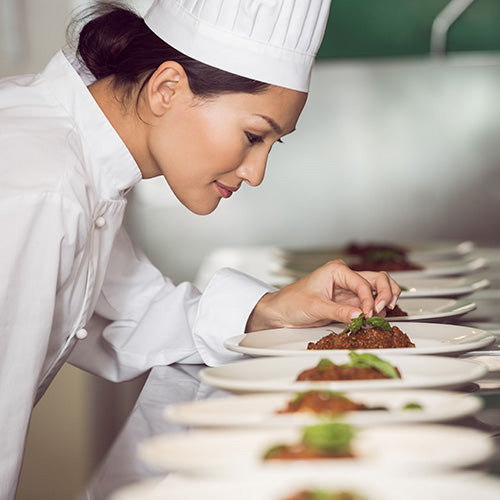Today's food industry is very different from 15 years ago. Vegan options are everywhere, consumers use apps to assess the nutritional value of their food and plastic has been minimized - in many countries as a step towards abolishing its single use.
We believe this is just the beginning of a farm-to-table food revolution that will make food more sustainable in many ways. In the future, food production will use less water, generate fewer greenhouse gas emissions, and won't need to travel as much. It will be healthier, less processed and with fewer calories. Value will be shared more equitably – especially with farmers – while animal welfare will be more respected.
To keep up with this revolution, food companies need to engage all industry players - from agriculture to government - and act in three key areas: reducing the impact of their existing activities, reshaping their value proposition and investing in new models.
Food production currently generates between 25% and 30% of global carbon emissions and uses 70% of consumed water. A first step for food companies is to decarbonize their existing operations, especially by reducing their energy use, including reducing the distances they transport their products.
Sustainable foods could represent up to 40% of volumes in about five years, and will be especially successful if they remain affordable without any price premiums: consumers appear to want sustainable foods, but their purchasing decisions may not always match theirs. declarations of intent. Achieving these goals requires the entire industry – agriculture, food production and distribution – to work together. In previous industrial revolutions, the winners were early adopters, and the same will apply to sustainable food. These days, industry giants are chasing startups, so it's time to be proactive.
Reformulating the value proposition is the second step. Food companies need to rethink their products and how they are produced. This could mean switching to more sustainable ingredients, reducing the use of plastic in packaging or investing in technologies that reduce food waste. Additionally, companies can consider creating new products that meet the growing demand for sustainable food.
Finally, food companies should consider investing in new business models that can accelerate the transition to a more sustainable food industry. This could include partnerships with food technology startups, investing in regenerative agriculture, or creating new brands focused on sustainability.
The farm-to-table food revolution is just beginning, and food companies have a unique opportunity to lead this change. By reducing the impact of their existing operations, reshaping their value proposition and investing in new business models, food companies can not only make their products more sustainable, but also create a fairer and more profitable future for the entire food industry.
Here at CuisinePro, we are committed to being part of this food revolution. We are constantly looking for ways to make our products and operations more sustainable and we are excited to share this journey with you. Stay tuned for more updates on our sustainability efforts!
I hope this post was helpful and informative. If you have any questions or comments, please feel free to get in touch. We are always here to help!




Leave a comment
This site is protected by reCAPTCHA and the Google Privacy Policy and Terms of Service apply.